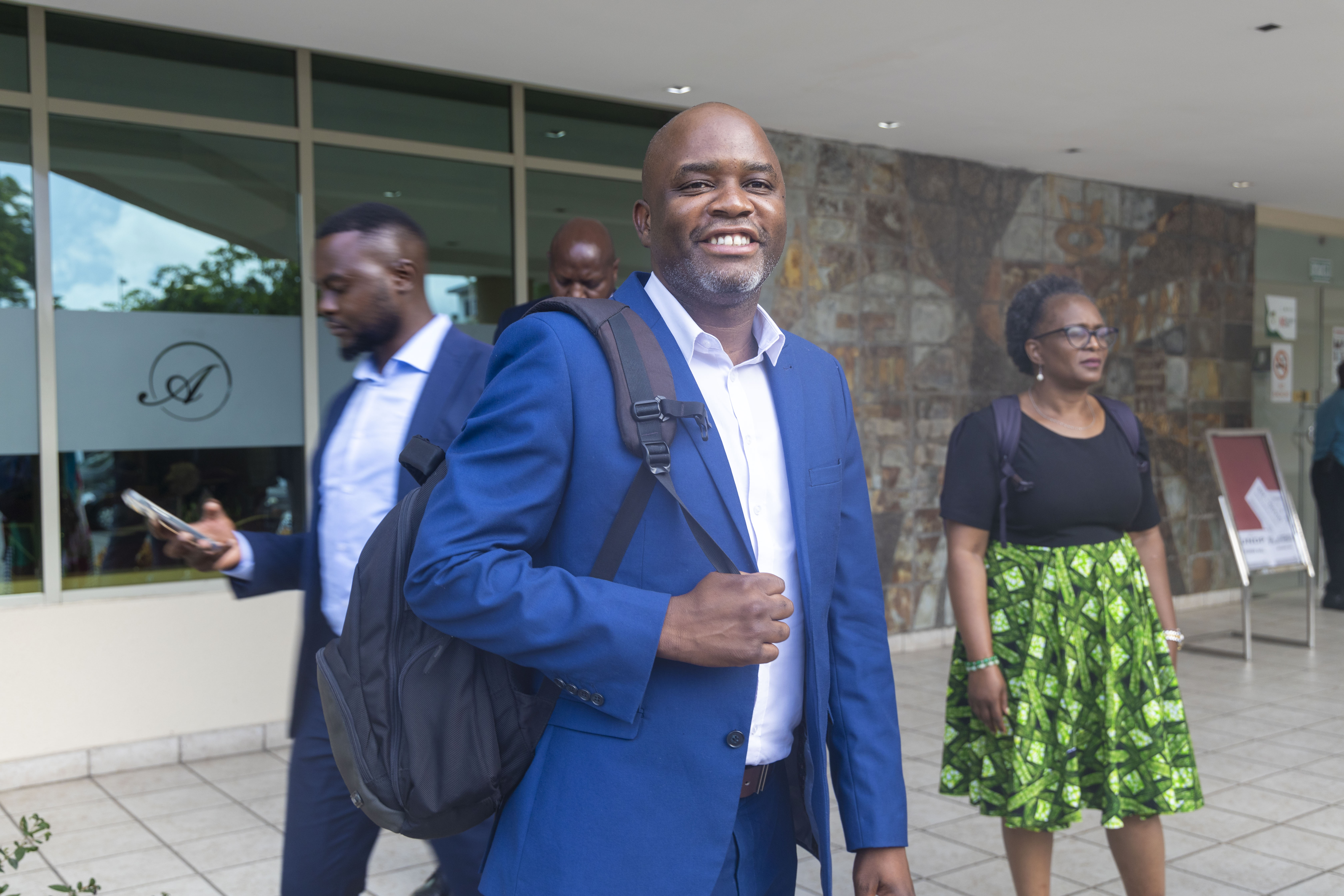Namibian National Development Advisor Discovers the Potential of Carbon Trading in Ghana
Unveiling the Green Economy: Namibia Study Tour on Carbon Markets to Ghana
June 9, 2023

Martin Kaonzo Kaonzo, of NPC, pictured during a Carbon Markets Namibia study tour to Ghana
In a bid to assess Namibia's preparedness for carbon trading, a group of Namibian government delegates embarked on an eye-opening four-day study tour of Ghana's Carbon Markets. The group looked at Ghana’s policy, legal, technical, and administrative carbon market frameworks to serve as benchmarks for decision-making regarding suitable carbon pricing instruments in Namibia.
Martin Kaonzo Kaonzo, the National Development Advisor and Focal Person for Climate Change at Namibia's National Planning Commission (NPC), was among the delegates to Ghana and shares his study tour experience. As the focal person for environmental-related matters at the NPC, Martin is responsible for integrating climate change-related actions into national policies and programmes and ensuring the budgeting and implementation thereof. He believes that understanding Ghana's experiences in implementing Article 6 of the Paris Agreement and tapping into the carbon market would greatly benefit Namibia in meeting its mitigation goals while addressing the financing gaps for the Nationally Determined Contributions (NDCs).
The visit exceeded Martin's expectations, particularly when he witnessed Ghana's active involvement in the carbon market through Articles 6.2 and 6.4 of the Paris Agreement. This served as an inspiration for Martin, as he saw the potential for Namibia to generate revenue and fund its climate change adaptation measures while reducing its greenhouse gas emissions. A valuable takeaway was Ghana's robust mitigation policy instruments and legal regimes across various sectors. From the newly launched Ghana International Carbon Market and Non-market Approaches Framework to existing environmental laws and policies, Ghana provided Namibia with a framework to guide its own carbon trading efforts.
The visit also shed light on the importance of having a carbon registry office, which Ghana had successfully established under the Environmental Protection Agency (EPA). Martin firmly believed that Namibia needs its own carbon registry to manage, register, and approve businesses for carbon trading. Drawing on Ghana's example, he emphasized the significance of engaging key stakeholders at the national and subnational levels in formulating Namibia's carbon market framework.
Reflecting on the exchange visit, Martin highlighted the importance of capacity-building initiatives for Namibia. Ghana's approach of conducting capacity gap analyses at both the national and subnational levels provided valuable insights for Namibia to better implement carbon trading projects.
Martin's visit also fostered strong connections between Namibia and Ghana, with promising collaborations in sectors such as electric vehicles, waste management, and rice production. Among the many impactful experiences during his visit, one that particularly resonated with Martin was the field trip to the Accra Compost and Recycling Plant, where he witnessed an integrated waste management approach. From pick-ups at the dumpsite to sorting and processing waste through recycling, the facility transformed waste into various valuable materials such as converting solid and liquid waste to organic compost. Martin was impressed by the contractual off-takes of the Plant with companies both within Ghana and internationally, which demonstrated the economic viability of waste management. As an advisor responsible for resource allocation to local authorities in Namibia, Martin recognized the valuable lessons that Namibian municipalities could learn from Ghana's waste management approach and trade carbon credits under bilateral agreements with practical examples of a circular economy.
Finally, Martin was eager to share the benefits of carbon trading with his organization and community. The revenue generated from the carbon market could be directed towards financing adaptation projects, enhancing climate change resilience, and supporting local communities, including communal conservancies and community forests. By exchanging contacts with private sector representatives and EPA officials, Martin aimed to deepen the network and ensure future cooperation.
Martin's exchange visit to Ghana not only broadened his horizons but also illuminated a path for Namibia's active participation in the carbon market road towards the implementation of its NDC. With valuable lessons learned, he returned to his role armed with newfound knowledge and a vision for a greener and more sustainable Namibia and has engaged senior management of NPC and has conducted several national and regional sectoral training and capacity-building workshops based on the materials developed under the JSB Promotion of Carbon Markets in Namibia project
Footnote:
UNDP Namibia, in collaboration with the Ministry of Environment, Forestry & Tourism (MEFT) Namibia, organized the Ghana Study tour with funding from the Japan Supplementary Budget (JSB) project entitled: Promotion of carbon markets in Namibia for an enhanced implementation of the nationally determined contributions (NDC) towards net-zero emissions and climate-resilient development (Promotion of Carbon Markets).

 Locations
Locations











